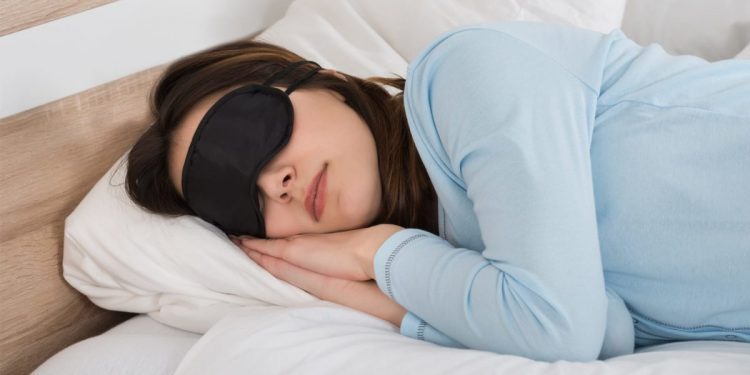Did you know sleep deprivation costs the US economy more than $400 billion every year? Whether it’s a chronic illness linked to sleep deprivation or lost productivity, a lack of sleep can cost a lot.
Sleep deprivation can have financial impacts in your own home too. You might be less productive at work and miss that big promotion. You may be more susceptible to illness, which racks up the medical bills.
If you’re wondering how to get better quality sleep or even just more of it, give one of these eight DIY remedies a try.
1. Try Meditation
One powerful tip for how to get better sleep is to try some meditation. Meditation helps to relax both body and mind, allowing you to let go of thoughts and feelings that could be keeping you up.
Other mindfulness techniques could also benefit you. Repeating a mantra may be one technique that can help quiet the mind.
Meditation can be practiced any time of day. You can start with short sessions and gradually work up to longer ones.
As a bonus, meditation has extra health benefits as well.
2. Get Moving
Exercise is another great way to get better sleep. Working out can help make you physically tired, which can aid in getting a better night’s sleep.
It also has benefits for your overall health and mood. Working out releases endorphins, which make you feel better. It also busts stress.
You may not want to engage in a high-intensity workout right before bed though. Exercise can make you more alert, which could make it harder to fall asleep.
Instead, try to get your intensive workout in early in the morning or evening. You can always engage in some gentle yoga right before bed if your schedule won’t let you get much more in.
3. How to Get Better Quality Sleep with Diet
Your diet also plays an important role in helping you get quality sleep. You probably know the usual recommendations, like avoiding caffeine and alcohol.

You may even have heard advice like drink tart cherry juice or a warm glass of milk.
There may be other pieces of the diet puzzle you’re missing. Magnesium is a good example. Some research shows this essential mineral can impact your sleep.
Taking magnesium may reduce symptoms of insomnia, helping you get to sleep and stay asleep. The mineral relaxes muscles and relieves stress, which could promote sleep.
You can also supplement with melatonin, a compound that affects the sleep-wake cycle.
4. Set Your Bedroom Up for Sleep
These next tips for how to sleep better focus on your sleeping environment. Factors like temperature can affect how easy it is to nod off, as well as how long you stay asleep.
You’ll want to keep your bedroom to the cooler side. You may turn the thermostat down a couple of notches before you decide to hit the hay.
Your bed may also help promote sleep. If you have a comfortable mattress that supports and cushions you, you’re going to be more ready to fall asleep. A mattress like the Nolah airfoam mattress can even help with temperature control.
Blankets, pillows, and more also affect how comfortable you are. Finally, make sure you use your bedroom for sleeping, not playing video games or watching TV. By making the bedroom about sleeping, you’ll prime your brain to sleep when you’re in this space.
5. Turn Out the Lights
Another key factor in your sleep environment is light. The human body responds to changes in the amount of light. People wake up when it’s bright and sunny, and they get ready to go to sleep when darkness sets in.
Artificial lights can throw this rhythm off. If your bedroom is very bright at night, then you may have trouble getting to sleep. You can use blackout curtains to shield block light from windows.
Don’t forget about the lights in the room either. Electronics and screens also emit lights. Try to unplug or remove lights from the room.
You should also resist playing on your phone or watching TV right before bed. Instead, power down your devices an hour before bedtime as part of your routine.
6. Try Some Essential Oils
If you’re still wondering how to improve sleep quality, you might want to try some essential oils. These can be dabbed on your temples before bed, or you can use a diffuser to put them in the air.
One of the most popular options for sleep is lavender. Some people even choose to keep lavender plants in the bedroom, the aroma is that potent.
Chamomile is another soothing scent. You might want to try chamomile tea, but you can also take advantage of the oil itself.
7. Book a Massage
One less common tip for how to get better deep sleep is to book a massage. Everyone knows massages can be relaxing, but can they help you sleep?
Science seems to say yes. Massage has been shown to help insomniacs get better sleep. It may also help with stress, anxiety, and pain, which can also interrupt your sleep.
8. Stick to a Routine
Finally, you should create a sleep schedule and stick to it. Getting up and going to bed at the same time every day helps train your circadian rhythm. That makes it easier to fall asleep when it’s bedtime, and easier to wake up in the morning too.
Erratic sleep schedules make it harder for the body to get into a routine, which means you might end up lying awake for hours on end.
If you want to go to bed by 10 pm, but you’re usually up until 1 am, you might have trouble going to sleep if you just switch it up. One way to retrain your sleep cycle is to go to bed an hour earlier each day, until you get to the bedtime you want.
Resist the urge to sleep in on weekends or stay up late. This throws you off schedule, which means you’ll have to start all over again.
Bank on Better Sleep
These tips should give you some ideas on how to get better quality sleep without spending a lot of money. Getting the right amount of sleep can help keep you healthy and even boost your performance at work.





